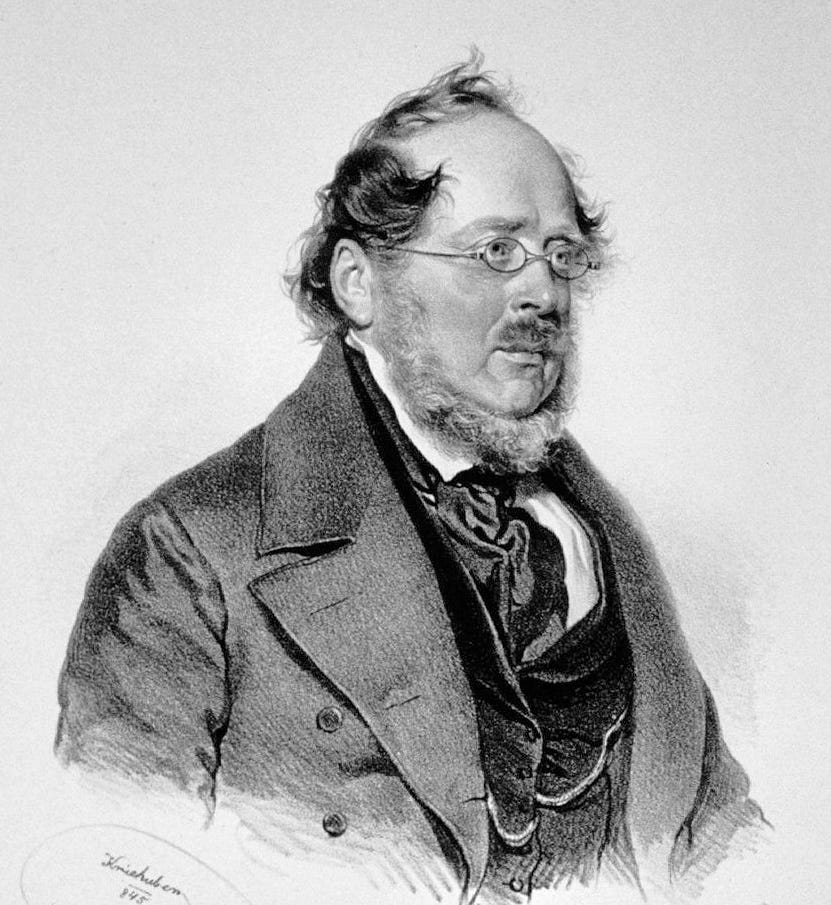Friedrich List Revisited
Why Economic Nationalism Speaks to Our Age
The Abigail Adams Institute, together with the Intercollegiate Studies Institute, recently convened an intimate seminar on Friedrich List’s National System of Political Economy (1841). Titled “Friedrich List Revisited: Economic Nationalism in a Global Age,” the event was held Friday, September 27, and Saturday, September 28, 2025, bringing together about a dozen participants: mostly Harvard students, some from surrounding universities, and fellows of the Institute.
Rather than operating from a neat thesis, the group was encouraged to wrestle with List’s arguments directly: to consider their worth today and to weigh how they might speak to our own brokenness. The atmosphere was serious, thoughtful, and—at points—lively, as debate turned to how exactly List’s economic nationalism could be applied to the challenges facing America now. Participants drew frequent connections between List’s 19th-century concerns and our contemporary economy, globalization, and way of life.
List’s system is simple enough: nations progress through stages, from agricultural to manufacturing to commercial power. Once they reach the final stage, they can lower their guard and help the next person along. This tidy progression makes sense on paper, but it is here that my agreement with List falters. Is history truly linear? Or is it cyclical? Or an ebb and flow where nations can regress as well as advance? America feels today like it is firmly in stage three—an established commercial power. And yet, I cannot shake the sense that we need something like a return to stage two, to the discipline and renewal of industry, if we are to excel again.
List’s famous distinction between mere exchange value and productive powers has implications far beyond tariffs. To my mind, productive powers include the moral, cultural, and spiritual capital that make a civilization flourish. A society can accumulate consumer goods while hollowing itself out, selling off not just its factories but the very epistemological and ontological truths that gave it civilization in the first place, all for foreign-made creature comforts. That is the danger of the liberal cosmopolitan economic order.
Harvard, like many elite institutions, likes to imagine itself a citizen of the world. But List’s critique of cosmopolitanism ought to sting. The Right, contrary to postwar stereotypes, has historically aligned more with a nationalist, traditionalist, and human-centered vision of economics. The Left would do well to admit this, and the Right should remember it. If economics is about the human person, then the conservative cause must be the one that insists on tying productivity to culture, work to family, and policy to the common good.
List challenges us to recognize that free trade is never a neutral ideal. It is a policy tool, wielded by nations only after they have secured supremacy. Every empire that has preached cosmopolitanism first protected itself. That is a lesson conservatives in America must relearn. The state’s role is not to bow before abstractions of the market but to foster the productive powers of its people—material and moral.
The seminar proved that even a 19th-century German economist can still unsettle our assumptions. For those who wish to conserve not only institutions but also the cultural and spiritual fabric of America, List is a voice worth revisiting. The survival of Christian civilization in this land may well depend on whether we heed him.
The Intercollegiate Studies Institute is a grantor of The Harvard Salient.




I confess. This is the first I have heard of Frederick List. From his Wikipedia entry, his life seems to have been pretty tumultuous. I also note that, unlike most modern economists, he had stints in business. He was not only an academic.
Trumponomics, including tariffs, seem to be off to a good start, but I expect things to get even better next year as the large commitments to direct investment into U.S. manufacturing start to gain traction. The list of commitments totals multiple trillions and should give us a large and lasting economic boost.
An economic boom of that magnitude and duration should also help to bring more voters to the right.